Comparative Politics: A Study of Dictators, Democrats, and Societies
VerifiedAdded on 2023/06/08
|5
|754
|232
Essay
AI Summary
This essay provides a comprehensive overview of comparative politics, exploring the dynamics of political institutions, domestic politics, and international conflicts. It delves into the methodologies of comparative analysis, contrasting the views of scholars like Fukuyama and Lijphart. The essay examines the role of political institutions in shaping governance, mediating conflicts, and formulating policies. It further analyzes the significance of cultural ideologies, including capitalism, socialism, communism, and Marxism, in influencing societal structures. The essay also investigates political economy, emphasizing its relevance in addressing global income inequality and the concentration of wealth. It highlights the relationship between states and markets, providing a nuanced understanding of how political and economic factors interact. The essay references key works by Dahl, Fukuyama, Huntington, Lijphart, and Maarek to support its arguments, offering a well-rounded perspective on the complexities of comparative politics.
1 out of 5
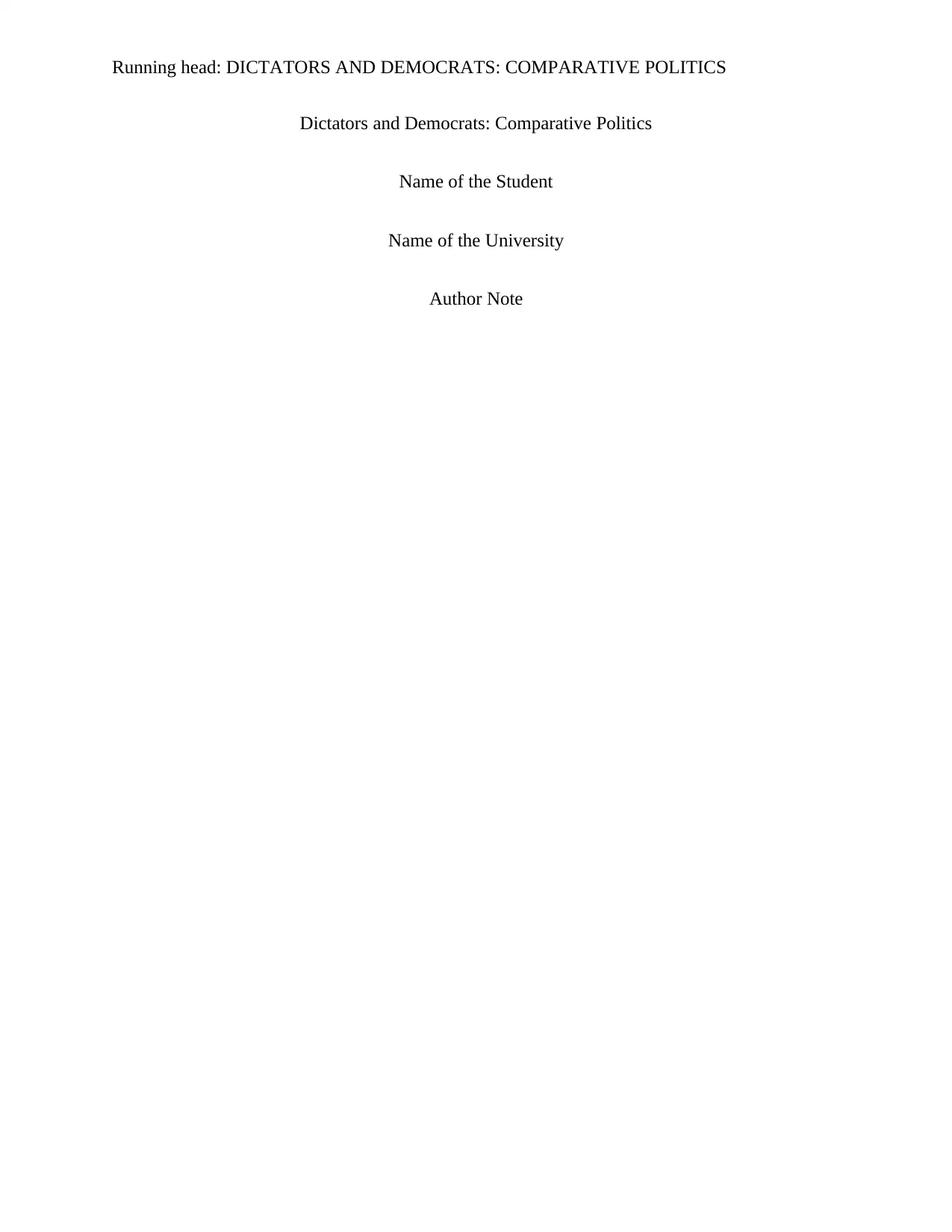
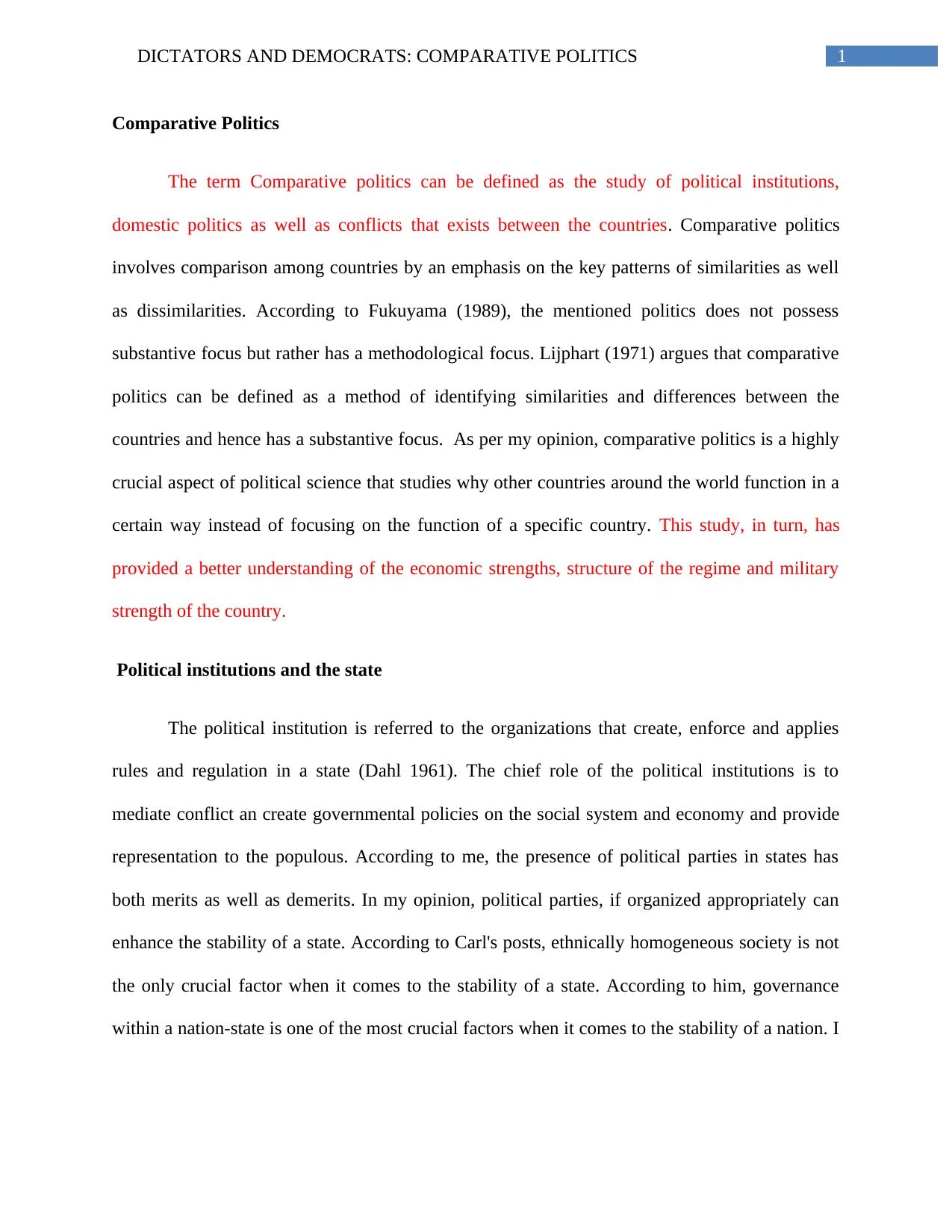
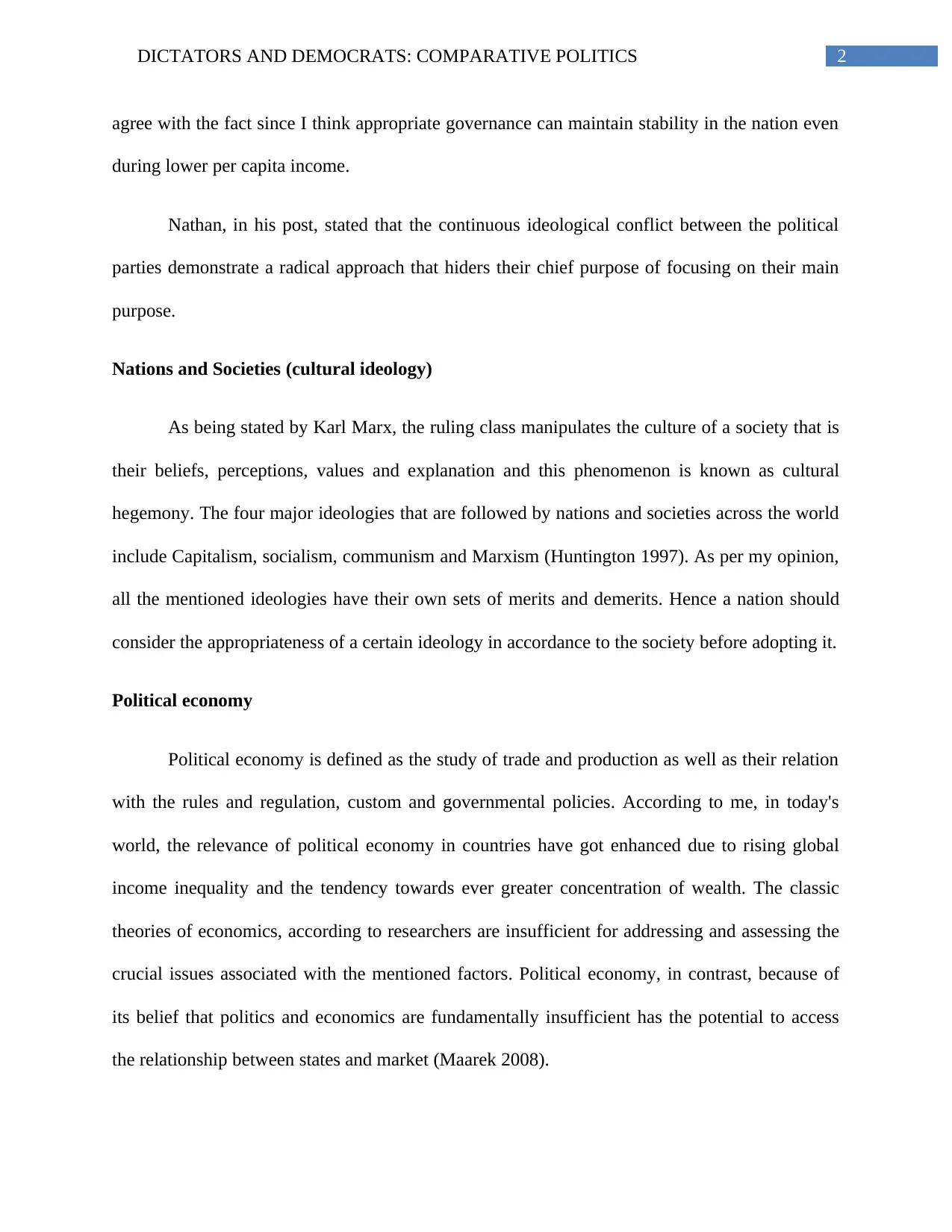

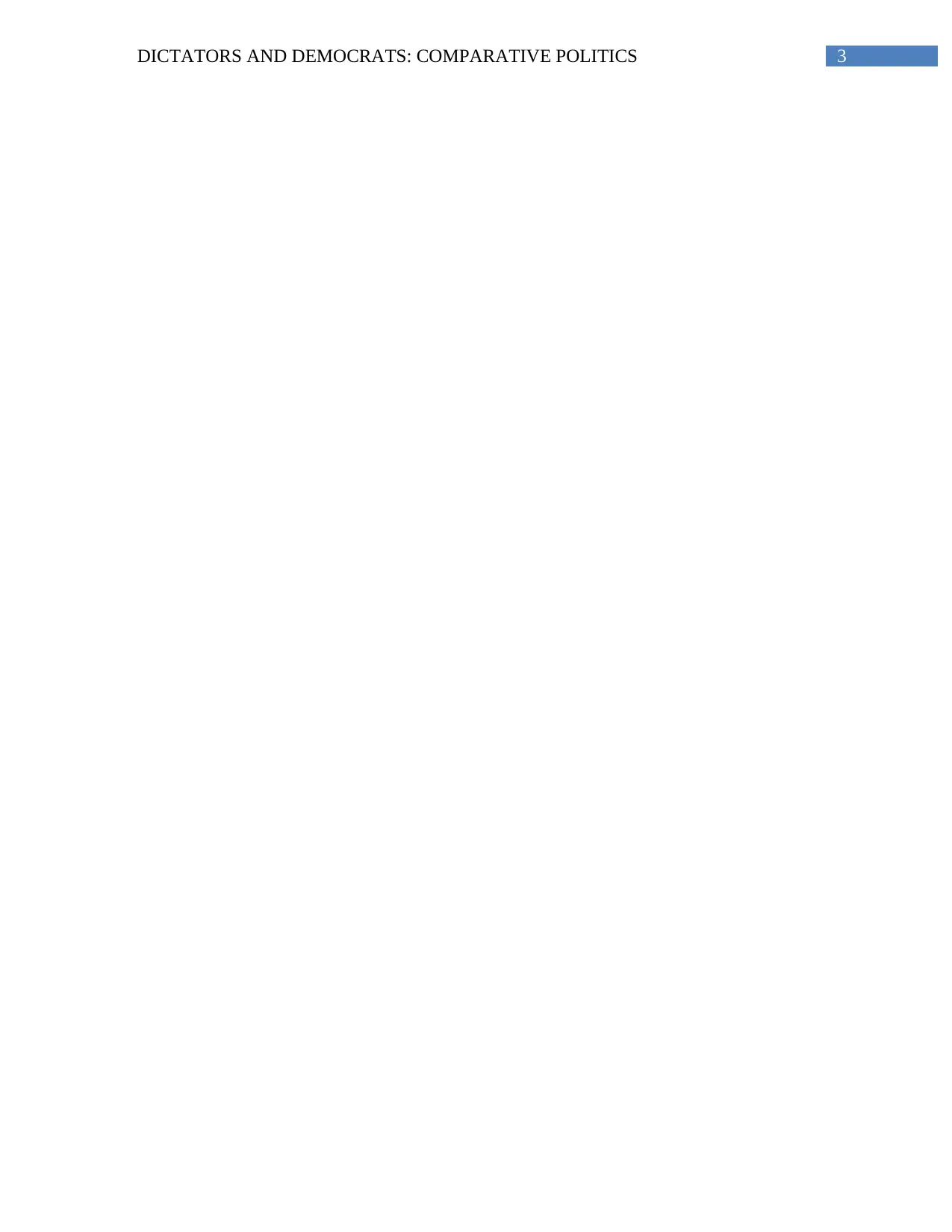
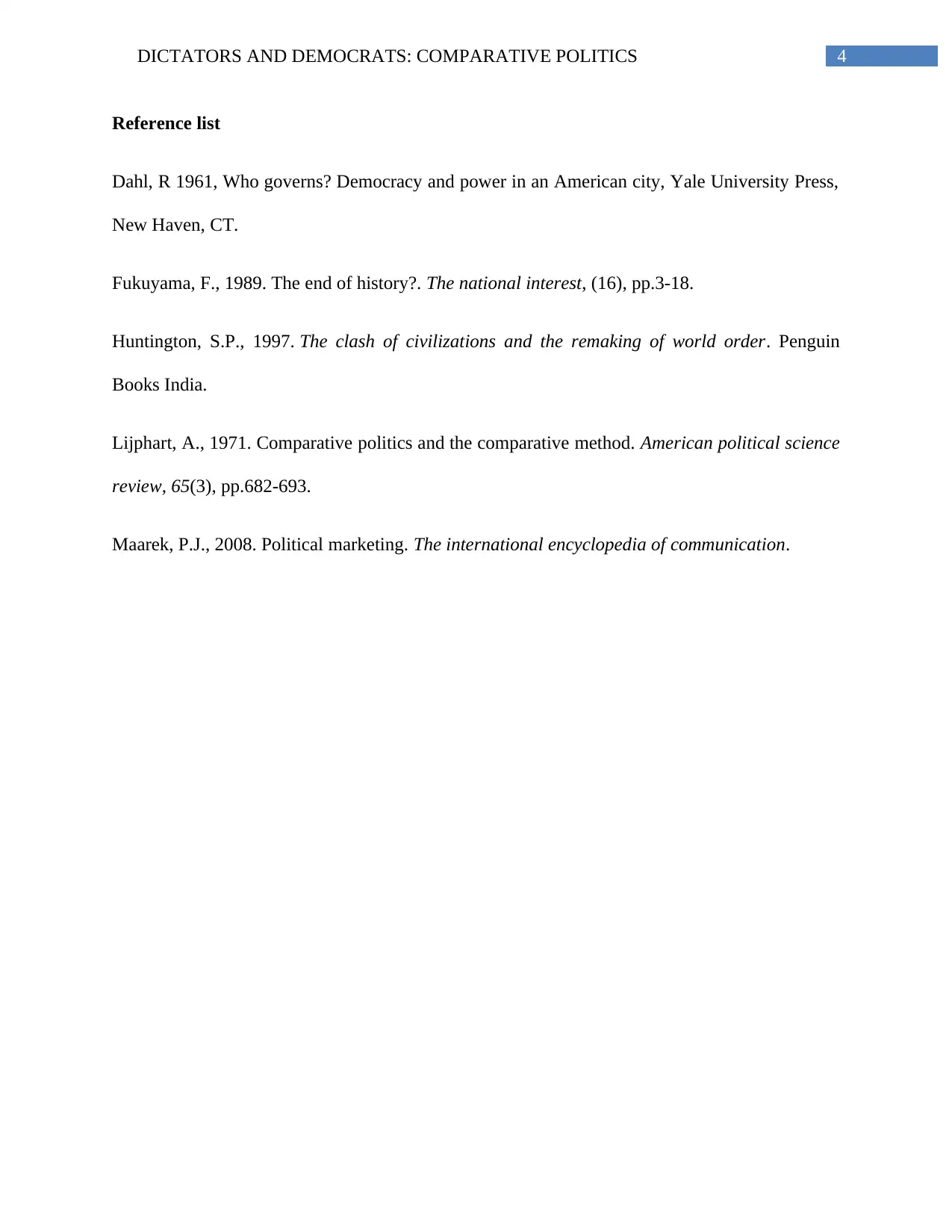






![[object Object]](/_next/static/media/star-bottom.7253800d.svg)